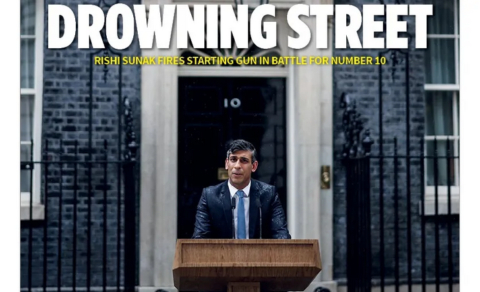I have to admit that I’m skeptical about this, as conspiracies tend to unravel the larger they get (hence the old joke about three being able to keep a secret, if two of them are dead), and the tradition of deathbed confessions has had six decades to reveal itself. However, Benjamin Dichter thinks that a full, honest investigation into the attempt on Donald Trump’s life in Butler, PA would also yield historical dividends on the assassinations of JFK and RFK in the 1960s:
On July 13, 2024, both tragedy and an iconic photograph in American political history emerged from the attempted assassination of the 45th president. Even the harshest critics of Donald J. Trump among the legacy media were forced to acknowledge the moment, which many believe has cemented President Trump as an American icon. This failed assassination has become one of the most pivotal moments in American history, akin to tragedies such as 9/11, Pearl Harbor, and the attempted assassination of Reagan. It is rapidly emerging as a unifying moment for many Americans, signaling that the media’s rhetoric and repeated attempts to label Trump as a dictator, a neo-Nazi, and other unsubstantiated vitriolic claims have gone too far.
Donald Trump, surrounded by Secret Service agents, raises his fist after an attempt on his life during a campaign speech in Butler, PA on 13 July, 2024. One spectator was killed and two others were reported to be in critical condition. The shooter was killed by Pennsylvania State Troopers, according to reports in the succeeding hours.
As a Canadian who has spent much of my life traveling to the US, I have always sensed an underlying, unresolved collective emotional trauma that lingers like morning fog. This trauma stems from the assassinations of President John F. Kennedy and his brother Robert F. Kennedy — both murders believed by the majority of Americans to remain unsolved. More on that in a bit.
A friend of mine, working with the Department of Defense in the domain of security readiness for the US government, has told me the level of incompetence and fumbling of security obligations during Trump’s speech in Butler, PA, was inconceivable. He is not one to be hyperbolic, and we are both believers in Hanlon’s Razor. However, after his long career in the military and then at the Department of Defense, where he learned there is no shortage of incompetence due to government bureaucracy, he insists that the most basic protocols were violated in this case.
How is it possible that anyone could get within 125 yards of a former President and current candidate with a rifle? Not just a small pistol hidden in a pocket, but a large AR-15 platform rifle. “The idea that this could happen uncoordinated is absurd” he said. Even the legacy media is unable to spin their usual ridiculous deflections, which often appear like a frenzy of spawning sharks whenever President Trump is in their midst.
The gravity of this situation has changed everything and heralds a dawn of opportunity for America. For Trump, it is a chance to show the world how the gears of the machine turn. How things really work behind the scene. He is presented with a massive opportunity to seek retribution on behalf of the American people, who are still grappling with unresolved issues from past traumas.
Unlike the tragic assassinations of JFK and Robert F. Kennedy, Trump survived and will likely return to office. Also caught in the chaos were innocent bystanders, notably Corey Comperatore, who sacrificed himself by shielding his family from gunfire, along with two other victims whose injuries were not life-threatening. The innocent victims and their families who will vote in November, make this a situation that hits home with many Americans regardless of party affiliation.























